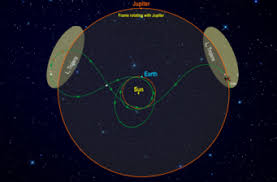
The Future of Space Exploration
Space exploration is an exciting and evolving field that holds the potential for significant scientific discoveries and technological advancements. Here are key points to consider regarding the future of space exploration:
- Human Missions to Mars: Ambitious plans by space agencies and private companies aim to send humans to Mars. These missions would represent a major milestone in human space exploration, with potential long-term habitation on the Red Planet.
- Lunar Exploration: The Moon remains a focus of exploration efforts, with plans for lunar bases and the establishment of a sustainable presence. The Moon is seen as a stepping stone for future deep space missions.
- Commercial Spaceflight: The rise of commercial space companies like SpaceX, Blue Origin, and others has transformed space access. These companies are developing technologies for tourism, cargo transport, and even lunar and Martian missions.
- International Collaboration: Space exploration often involves international cooperation, with countries working together on projects like the International Space Station (ISS) and future lunar missions.
- Space Telescopes and Observatories: Advanced space telescopes like the James Webb Space Telescope (JWST) promise to revolutionize our understanding of the universe by observing distant galaxies and planetary systems.
- Asteroid Mining: Companies are exploring the feasibility of mining asteroids for valuable resources like metals and water, potentially opening up new frontiers for space industry.
- Space Tourism: Commercial spaceflight companies are working towards making space tourism a reality, offering suborbital and orbital experiences to private individuals.
- Space Sustainability: With an increasing number of satellites and space debris in orbit, space sustainability and debris mitigation strategies are becoming crucial to ensure the long-term usability of space.
- Scientific Discoveries: Space exploration contributes to our understanding of the cosmos, including the search for extraterrestrial life, the study of exoplanets, and the investigation of fundamental astrophysical phenomena.
- Challenges: Challenges in space exploration include the cost of missions, radiation exposure to astronauts, and the need for life support systems for long-duration missions.
In conclusion, the future of space exploration holds immense promise for scientific discovery, technological innovation, and expanding human presence beyond Earth. Continued investment in space exploration is likely to shape our understanding of the universe and lead to advances that benefit life on our planet.


